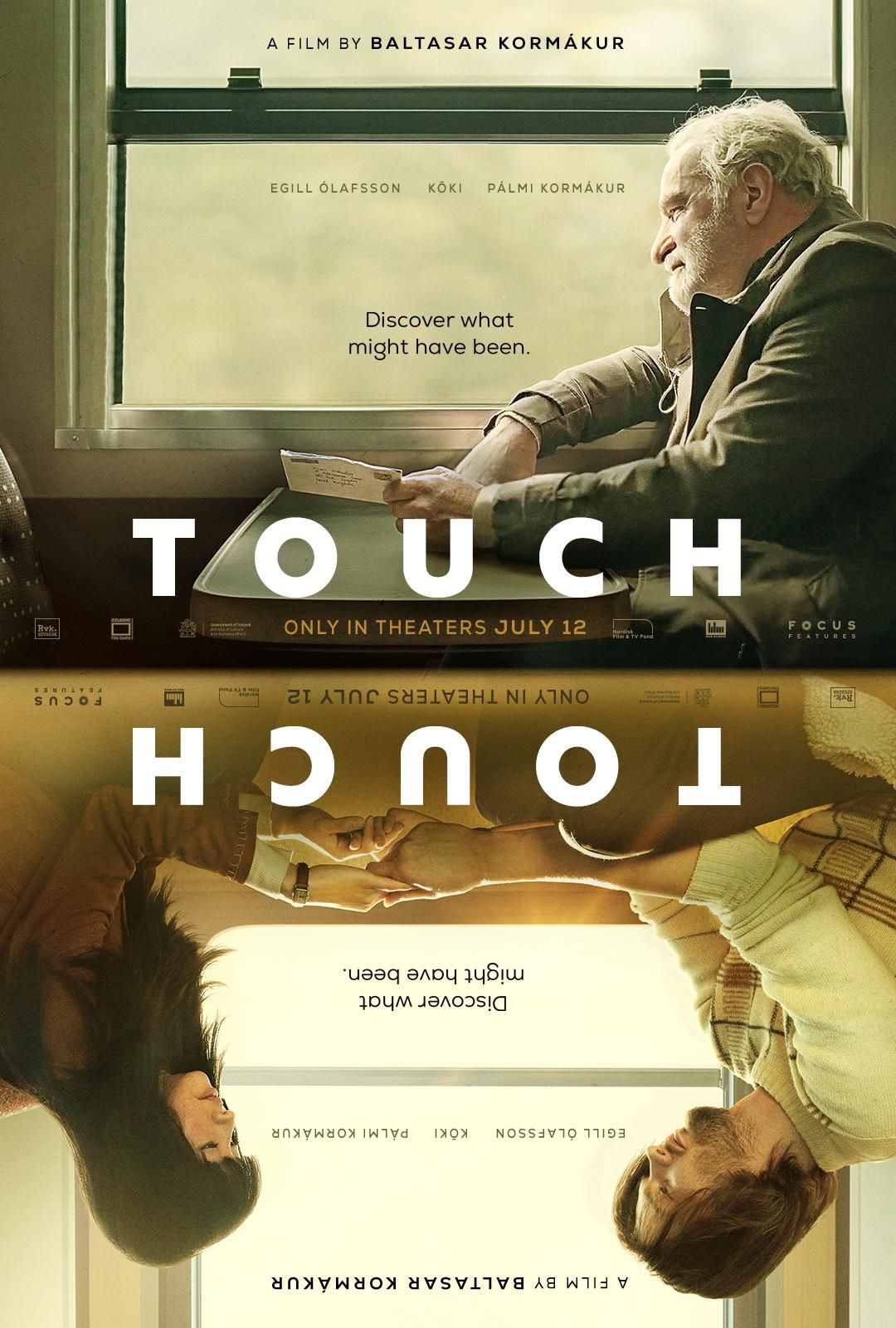Summary
- Touch tenderly explores reconnection with the past, hope, and love through a beautifully moving story.
- The film effectively showcases the long-lasting effects of war on individuals and generations, filled with genuine emotion.
- Touch seamlessly moves between time periods, capturing the deep emotions and connections between characters.
Touch (2024)
is about reconnection — with one’s past, with the more hopeful version of oneself, and with love. There’s a sense of regret wrapped into its story, but what the film does so wonderfully is reveal the long-lasting effects of war on a population, the repercussions of which are felt through generations. Directed by Baltasar Kormákur from a screenplay he co-wrote with Olaf Olaffson, Touch lovingly handles its subject matter and characters and reminds us that what was once lost can be found again.
The film’s story is told over decades. We follow Kristófer (Egill Ólafsson), at first in his older age, as he leaves Iceland for London, determined to find his long-lost love, Miko (Yôko Narahashi). The pair first met when they were in their early 20s. Kristófer (Palmi Kormákur) was a student at a university in London, but he dropped out to work at a Japanese restaurant run by Miko’s (Kôki) father, Takahashi (Masahiro Motoki), where he learned how to cook and quickly fell in love with Miko.
Touch Easily Moves Between Time Periods
It can be difficult to move between one time period and another, but Touch does it with ease, planting us in each moment while allowing us to absorb the feelings that come with it. The film isn’t overly reliant on dialogue to get its point across, and I was often left feeling like an outsider looking in, following Kristófer as he travels — languidly yet desperately — to find the one woman who stole his heart so many years ago.
Touch is a tender and genuinely romantic movie. It isn’t afraid to showcase its gentle side as it wears its emotions on its sleeve. It shares its joy and heartache in equal measure. Both of the characters’ lives are complicated in their own way, though the film smartly refrains from oversharing. We know just enough to piece together certain elements of Kristófer’s backstory and the tension with his daughter, palpable from every voice note she leaves him while her father travels in the midst of Covid-19 lockdowns in 2020.
[Touch] isn’t afraid to showcase its gentle side as it wears its emotions on its sleeve.
And yet, Kristófer is determined to find Miko after 51 years apart, knowing that he’s running out of time. Touch is effective because it’s not only about the complex feelings and connection between Kristófer and Miko, it’s also laced with mystery regarding what happened to Miko and why she and her father left London for Japan so abruptly. Information is provided to us in sparse bursts, and it’s enough to maintain intrigue and keep the story going.
Touch Explores Trauma & Its Generational Effect
Miko, a survivor of the atomic bomb the US dropped on Hiroshima, is still plagued by the catastrophic event. The filmmakers aim to highlight the lingering trauma with sensitivity, and succeed. It’s a reminder that we can talk about history as though it’s a vague and untouchable concept, but it’s very real, touching people and changing the course of their lives and the way they move through it. It doesn’t overpower the story, complementing it at every turn. The repercussions of Takahashi’s decisions are deeply felt, and we are just as viscerally moved by the film’s ending because of it.
If anything, Touch could have lingered a bit more on past moments. The film seems preoccupied with its present, the past a dream-like cobweb that is clearing from one’s memory. That said, Kristófer and Miko’s reunion is still beautiful and flowing with emotion. It’s also a testament to both sets of actors that we become so invested in the characters’ story. Their love and connection is genuine, and it’s a big part of what makes the film, even in certain predictable moments, so magnetic and lovely.
If nothing else, the film is a tender reflection on the past and its effect on the present.
Ólaffson is especially great at conveying the older Kristófer’s weariness and heartache. His face is so expressive, and I could feel the pain and joy emanating from his eyes. Kristófer is reaching the end of his emotional rope, but it doesn’t deter him from continuing to try. Yôko Narahashi is equally great, and though she gets considerably less screen time, her performance is moving.
I wish more time had been spent on the older versions of the characters as they reunite, but it’s still lovely to spend as much time with them as we do. Touch’s ending is heartfelt and somber, but also hopeful. It’s two people reconnecting after so long apart, as they start to pick up the pieces of the lives they left behind to start anew. If nothing else, the film is a tender reflection on the past and its effect on the present.
Touch is now playing in theaters.
In Touch, a brilliant neuroscientist develops a groundbreaking device that enables people to feel the memories of others physically. As the invention gains global attention, it inadvertently intersects the lives of three strangers: a grieving widow seeking solace, an estranged son longing for reconciliation, and a young artist pursuing inspiration.
- Egill Ólafsson and Yoko Narahashi are especially great together
- The story is tender and moving, gently handling its subject matter
- Touch could have lingered more on past and present moments


